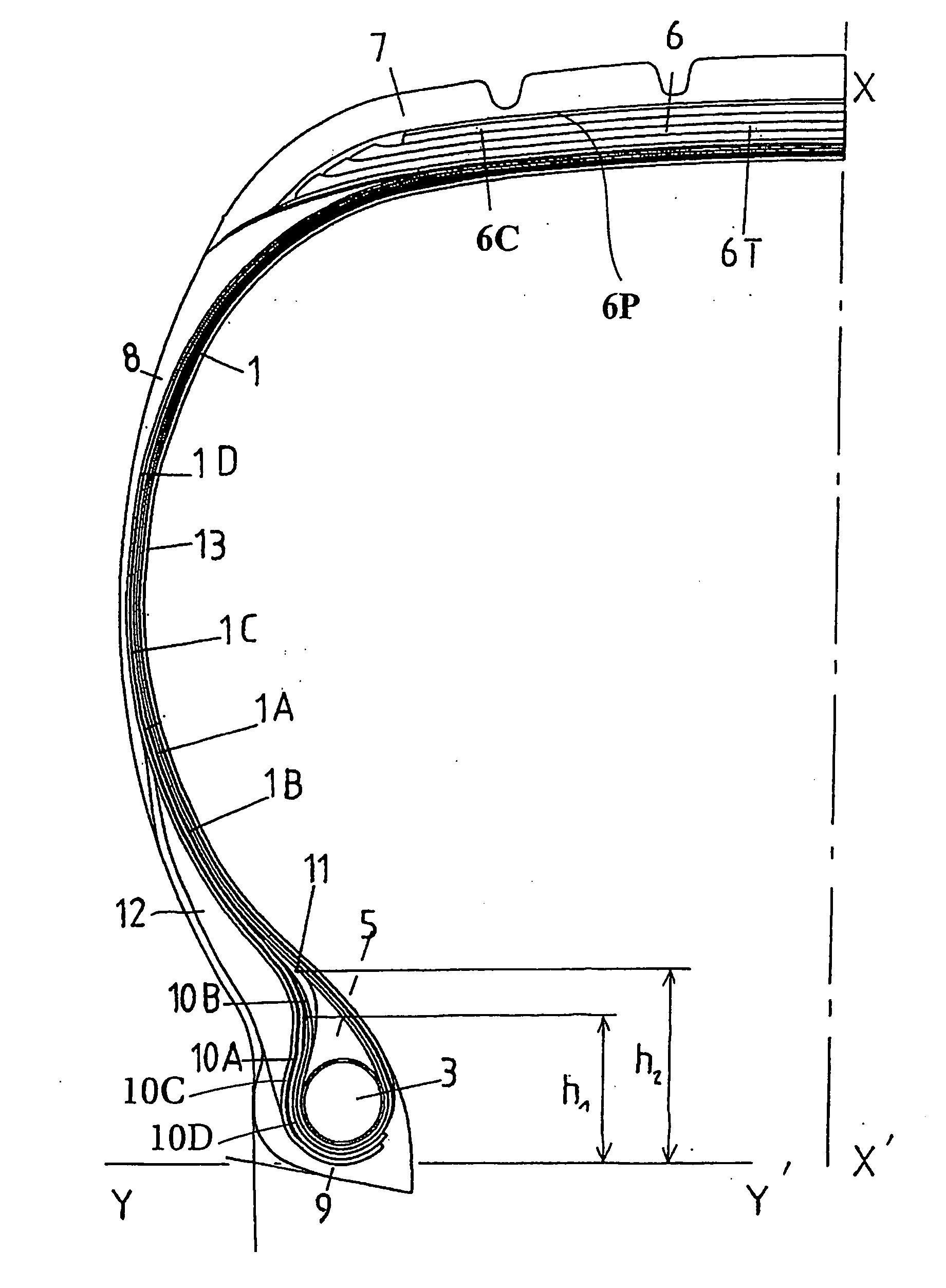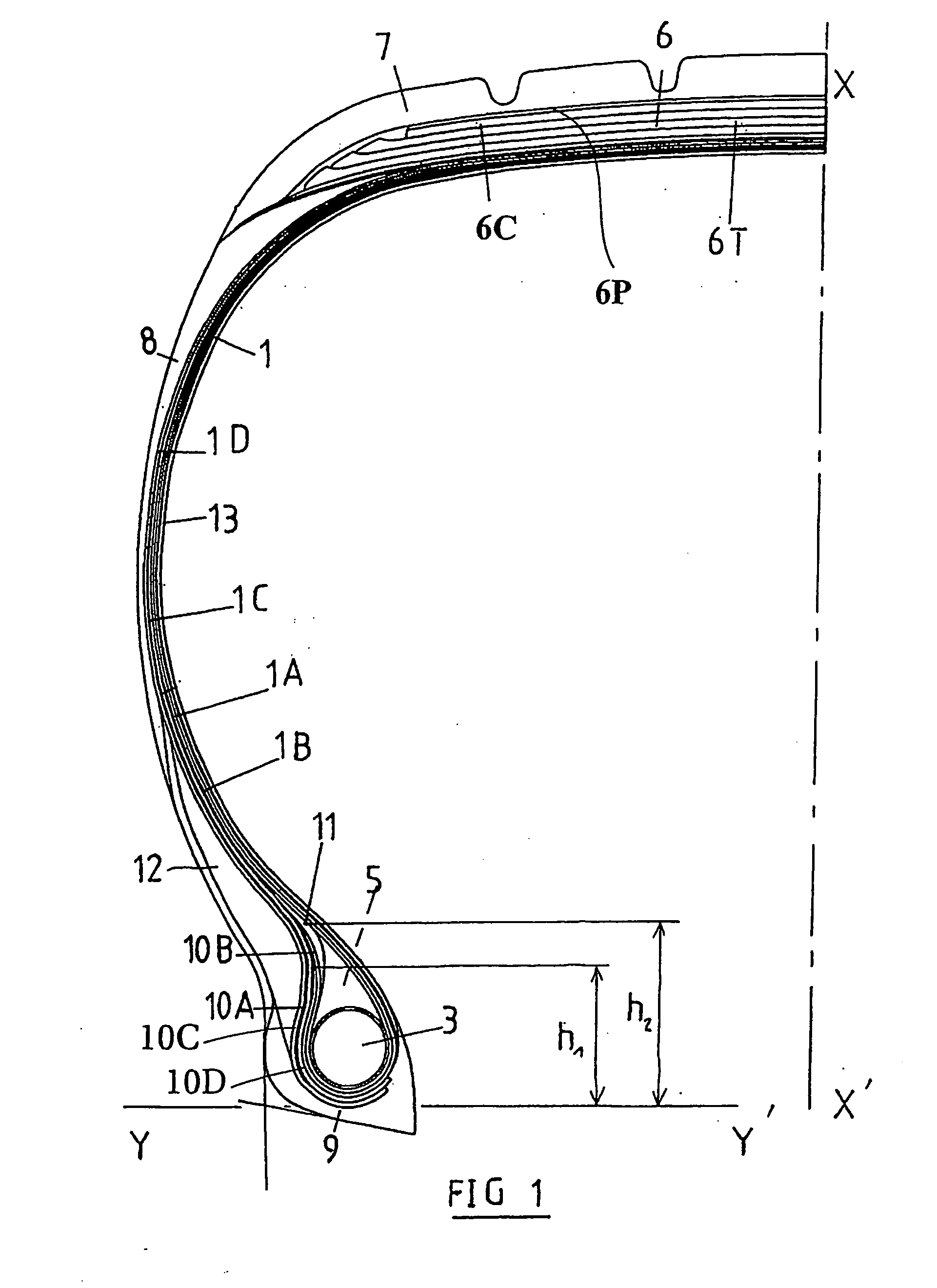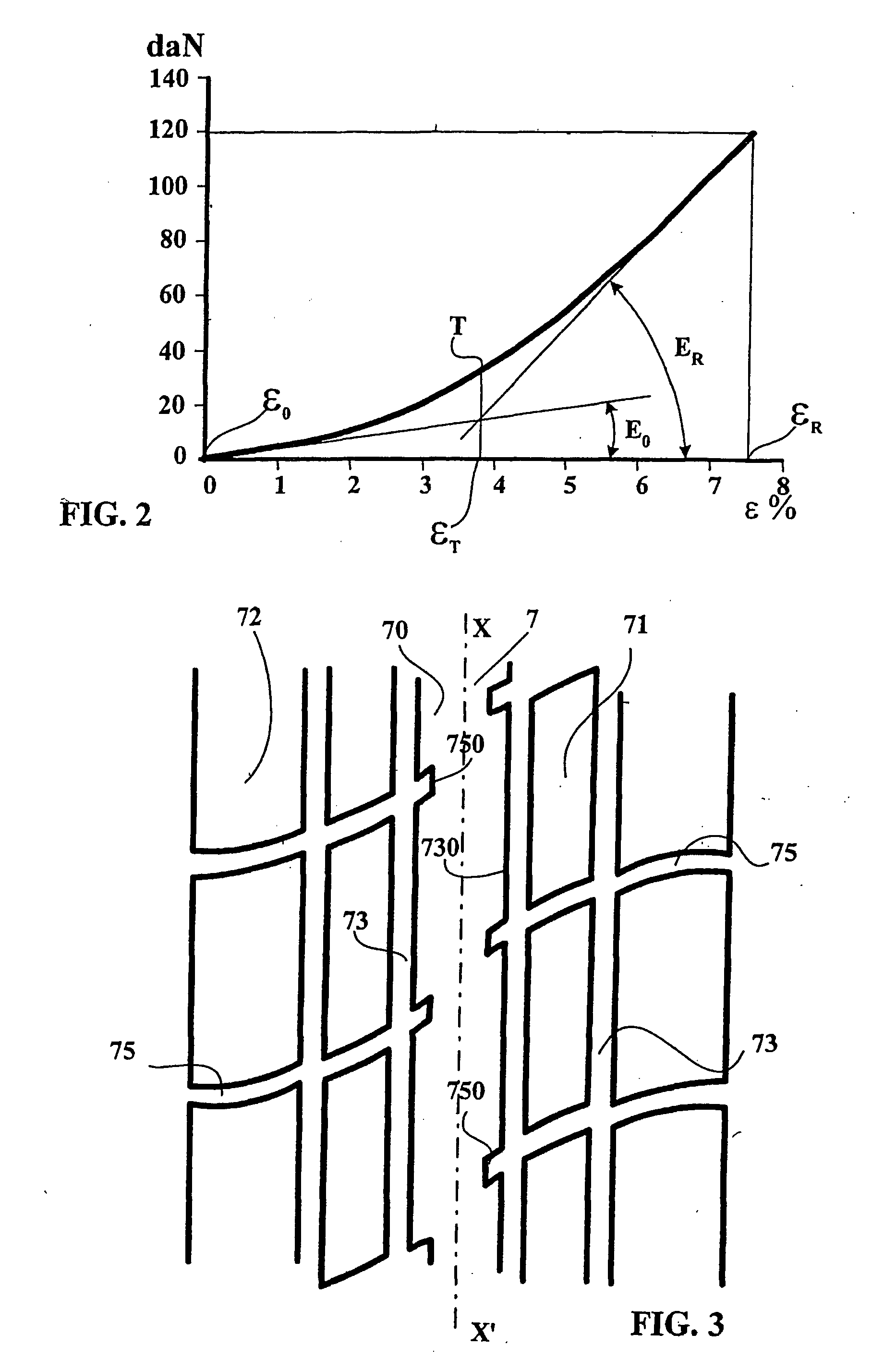Aircraft tire reinforcements
a technology for aircraft and reinforcements, applied in the field of aircraft tires, can solve the problems of limiting the endurance of the beads, the progress of the development of the beads' architecture, and the low durability of the beads, so as to reduce the weight, reduce the processing cost, and increase the ease of manufacture
- Summary
- Abstract
- Description
- Claims
- Application Information
AI Technical Summary
Benefits of technology
Problems solved by technology
Method used
Image
Examples
Embodiment Construction
[0034] The example given is that of a tire of standardized dimension 1400×530 R 23 (in accordance with the “Tire and Rim Association” standard). The carcass reinforcement 1 is formed of four plies 1A to 1D of radial textile cables. “Radial cables” of an aircraft tire is to be understood to mean cables forming angles which may be within the range 90°±15° with the circumferential direction. Among said four plies, two plies 1A and 1B, which are axially inner in the sidewalls and beads, are wound within each bead 2 around a bead wire 3, having in the case in question a circular cross-section, from the inside to the outside of the tire P, to form upturns 10A and 10B. There is furthermore provided a protective tongue (formed of textile reinforcements of aliphatic polyamide) wound around the bead wire and separating said bead wire from the carcass reinforcement.
[0035] The ends of said upturns are distant from the base of the bead, represented by a line YY′ parallel to the axis of rotation...
PUM
| Property | Measurement | Unit |
|---|---|---|
| Fraction | aaaaa | aaaaa |
| Fraction | aaaaa | aaaaa |
| Fraction | aaaaa | aaaaa |
Abstract
Description
Claims
Application Information
 Login to View More
Login to View More - R&D
- Intellectual Property
- Life Sciences
- Materials
- Tech Scout
- Unparalleled Data Quality
- Higher Quality Content
- 60% Fewer Hallucinations
Browse by: Latest US Patents, China's latest patents, Technical Efficacy Thesaurus, Application Domain, Technology Topic, Popular Technical Reports.
© 2025 PatSnap. All rights reserved.Legal|Privacy policy|Modern Slavery Act Transparency Statement|Sitemap|About US| Contact US: help@patsnap.com



